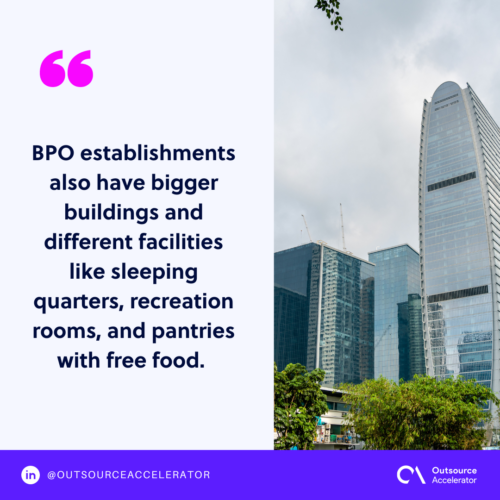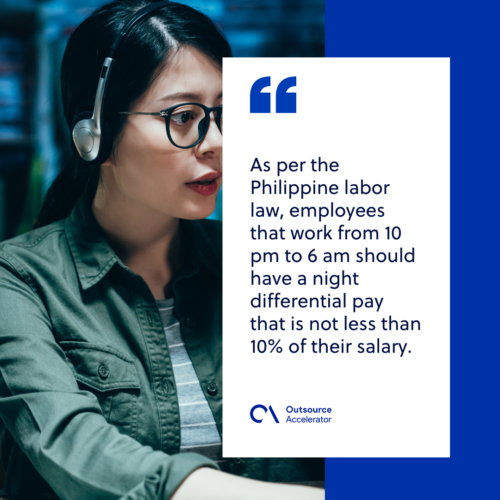Call center hours: What you should know about working at a call center in the Philippines

Call center jobs have become a predominant career in the Philippines, with a huge portion of the working population in the BPO sector.
For decades, the country has been one of the world’s outsourcing powerhouses. With this, more and more foreign companies are choosing the Philippines for a wider pool of seasoned and well-skilled talents.
A report by Bangko Sentral ng Pilipinas has revealed that even with the global pandemic, the BPO industry obtained an 8.3% growth rate in 2021. Known as the key driver for foreign and dollar investments, the BPO sector is projected to grow further in the coming years.
If you are aspiring to work in the call center field, in this article, we will tackle the things you should expect before sending that job application.
Specifically, we’ll discuss call center hours and scheduling systems to give you a glimpse of what it’s like to work at a call center in the Philippines.
Working as customer service representatives in the Philippines
Many Filipinos have become attracted to working at a call center for many reasons. While call centers offer great perks, there are also downsides that you have to be aware of.
What mainly draws Filipinos to call centers is the good compensation, the benefits, and the flexible call center hours.
The average base salary for call center jobs in the country is PHP 20,611 each month. Call center agents can earn from PHP 20,000 to over PHP 60,000 monthly in the Philippines.
There is no required educational degree for most call center roles. Whether you’re a high school graduate or a fresh college grad looking to build a career or an experienced worker, you’re welcome to apply to BPO companies.
Moreover, compared to other job titles, there is no specific age requirement for call-center representatives apart from being of legal age.
BPO establishments also have bigger buildings and different facilities like sleeping quarters, recreation rooms, and pantries with free food.
On the other hand, there are also some drawbacks to working at a call center. One thing you have to be aware of is that it can be a pretty stressful job as you will be dealing with various customers.
Engaging with irate and frustrated customers is unavoidable at times.
You also have to adjust your body clock because call center hours follow shifting schedules. While some people view the varied call center hours as an advantage, others may take some getting used to.

What are the call center hours in the Philippines?
With regard to call center hours, you have to be aware that call centers in the Philippines operate 24/7.
Since BPO companies in the country cater to foreign clients, call center hours are typically divided into three shifts:
Morning shift
It is also known as the first shift of the day. Agents that are on the morning shift are commonly called “openers.”
Out of the three shifting schedules, these call center hours can be compared to the regular working hours.
Mid-day shift
Mid-day shift or mid-shift refers to the second shift of the day. Agents in the mid-shift log in for work during the middle of the daily call center hours.
Night shift
The night shift is also referred to as the graveyard shift. This is the third and final shift out of the three types of call center hours. Call center agents who are on the night shift are provided a night differential pay.
As per the Philippine labor law, employees who work from 10 pm to 6 am should have a night differential pay that is not less than 10% of their salary.

Call center hours: Other things to expect in working at call centers
Aside from the call center hours, we have also outlined other things that you should expect regarding scheduling and other activities once you start working at a call center:
Shifting schedules
If you’re assigned to any of the call center hours we have discussed above, note that it will not be a permanent schedule. Shifting schedules usually change every month or every few weeks.
Technical support
Agents working as technical support in the Philippines can expect to handle a variety of technical issues, often involving troubleshooting and problem resolution for diverse products and services.
Be prepared for high-pressure situations, including managing multiple cases simultaneously and providing clear, effective solutions while maintaining excellent customer.
No holidays
The BPO industry in the Philippines typically caters to foreign clients from across the globe. This means that local and national holidays in the country don’t apply to daily working schedules and call center hours.
Call center agents are still usually required to work, but they’re entitled to the appropriate holiday pay.
More freebies
It is typical for BPO companies to offer a lot of freebies to their agents. These freebies usually include free movie passes, shopping vouchers, and eat-all-you-can buffet cards.
These are given as incentives for perfect attendance, high CSAT scores, or even overtime bonuses.
Call center teams
Call center agents are team players. While your performance will assess you, you will be working together with your team.
After you finish your call center training, you will be assigned to a specific team with a team leader, also called the team manager.
Regular team buildings
Team buildings or team outings are a common practice for BPO companies. This is a good form of cultivating a good relationship with your colleagues and, at the same time, destressing after a toxic week.
To help you choose which BPO companies to apply to, check out our top 40 BPO companies in the Philippines!







 Independent
Independent




